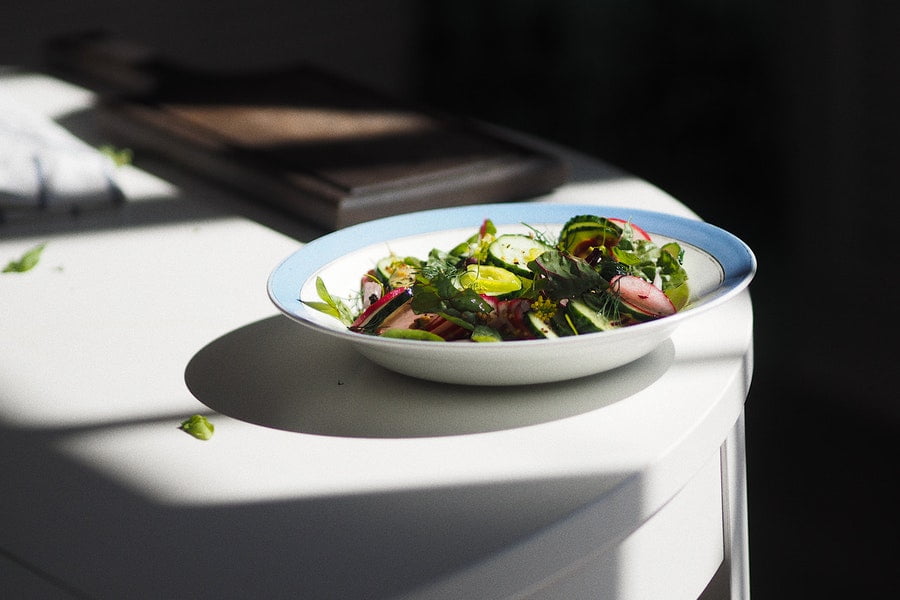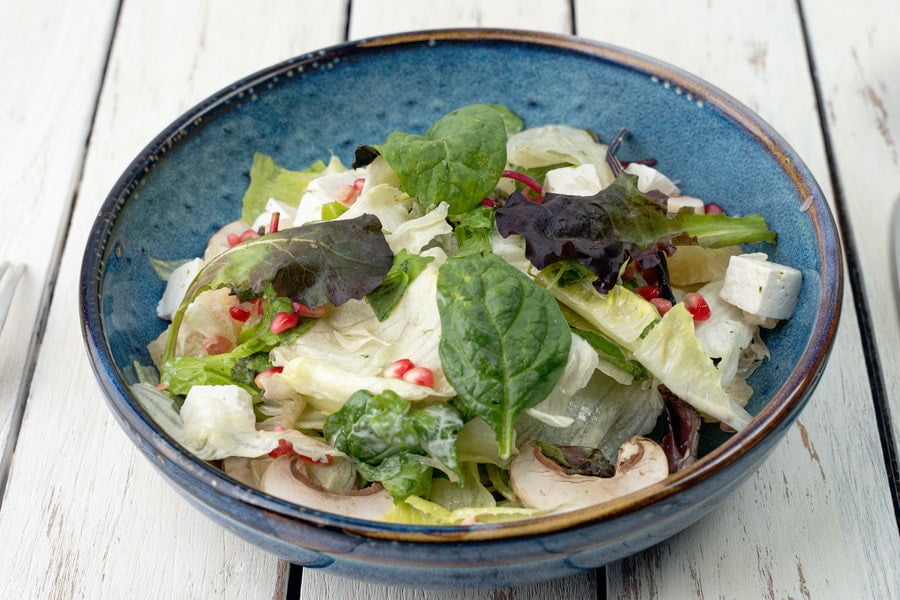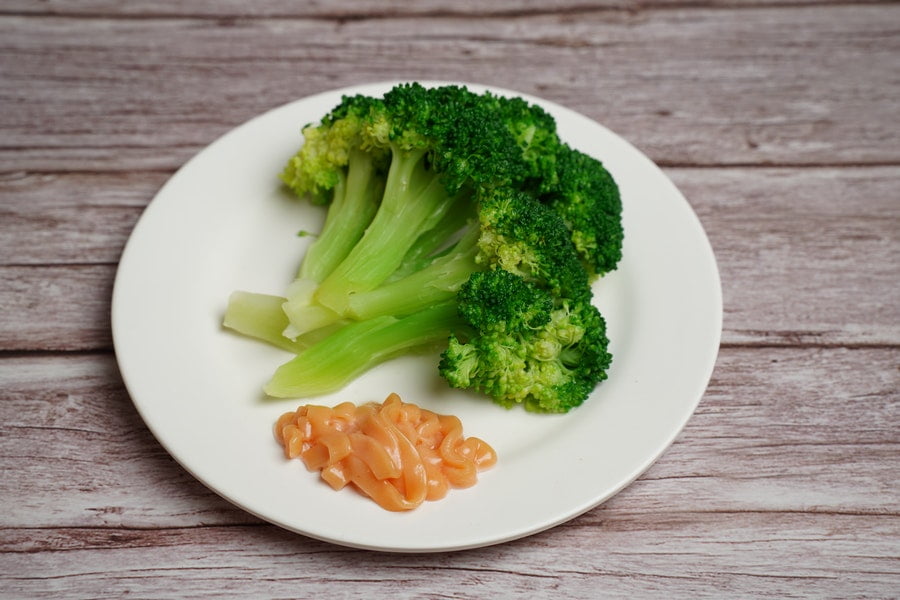The most popular—and despised—method of consuming vegetables at lunch or dinner may be salads. But is eating too much salad bad for your health?
Salad is a popular food choice for many people because it is considered to be a healthy option. However, some people may be eating too much salad and this could be bad for their health.
There are pros and cons to eating salads. The pros include that salad is a good source of vitamins and minerals, it can help with weight loss, and it can be a part of a healthy diet. The cons include that salads can be high in calories if they are not made correctly, they can contain unhealthy ingredients such as dressing and croutons, and they can take up a lot of room in your stomach which may make you feel full before you have had enough to eat.
We met with Toby Amidor, MS, RD, CDN, FAND, a Wall Street Journal best-selling cookbook author, and Lauren Hoover, RD, an award-winning nutritionist, to get the facts about this common health meal and what occurs when you eat salad. If you find out just how those daily salads are affecting your diet, you could be astonished!
So, is eating too much salad bad for your health? It depends on the person and their wellness tips.
The amount of fiber you receive will increase

Consuming raw produce, including leafy greens, is a fantastic method to increase our intake of fiber. By including fiber in your diet on a regular basis, you can promote healthy digestion, and reduce your risk of developing type 2 diabetes and obesity. According to Hoover, the fiber in veggies can help regulate blood cholesterol. Therefore, by eating salads frequently, we can reap a number of health benefits if we are wise about what we include in them. When you reach for the salad, try adding some tomatoes, carrots, or cucumbers to up your fiber intake.
You’ll eat beneficial nutrients

Although vegetables are brimming with nutrients your body needs, you might need to eat more of them. According to Amidor, just one in ten Americans consumes the recommended daily intake of fruits and vegetables. This indicates that 90% of Americans do not get enough fruits and veggies each day. You are depriving yourself of many crucial nutrients if you aren’t getting enough.
The antioxidant vitamins A and C, potassium, and a variety of phytonutrients, which are organic plant substances that can help prevent and treat disease, are just a few of the essential elements that veggies supply, according to Amidor. The good news is salad might hold the key. Hoover thinks salads are a fantastic method to consume the recommended daily amounts of vegetables.
“I often advise making half of the dish at each meal vegetables. So, a good technique to increase vegetable intake and reach this proportion is to include salads with your meals or serve them as your entrée.” People who reported eating salads particularly had greater levels of vitamins A, B-6, C, E, and K, as well as folate, choline, magnesium, and potassium, according to the Journal of the Academy of Nutrition and Dietetics.
You might eat more fat and calories

Salads are a great source of fiber and nutrients that our bodies require, but it’s vital to remember that eating salads frequently can occasionally have unfavorable side effects as well. According to the same study published in the Journal of the Academy of Nutrition and Dietetics, habitual salad eaters also exhibited greater levels of refined carbohydrates, salt, and fat.
In order to make their salads taste better, most individuals frequently add foods that are heavier in fat and sugar, claims Amidor. According to Amidor, salads constructed with a lot of high-calorie items, such as cheese, loads of nuts and seeds, tortilla chips, avocado, and creamy dressings, can have 800 calories or more in them.
“Frequently consuming meals with a lot of calories has the potential to cause weight gain, obesity, and type 2 diabetes.” Hoover additionally informs us “Although some salads are more nutrient-dense than others, not all salads are made equal. Some salad dressings contain calorie and sugar-added secret components.”
Is eating too much salad bad for your health?
The Pros of Eating Salads
Salads are a great way to get important nutrients like fiber, vitamins, and minerals into your diet. They can also help you lose weight or maintain a healthy weight. While there are some benefits to eating salads every day, there is such a thing as eating too much salad. Eating too many leafy greens can actually be bad for your health.
Leafy greens are high in nitrates, which can convert into nitrites in the body. Nitrites can cause an illness called methemoglobinemia, which interferes with the ability of red blood cells to carry oxygen throughout the body. This illness can be serious, especially for babies and young children. So, how much salad is too much? The general rule of thumb is to limit your leafy green intake to no more than one cup per day.
The Cons of Eating Salads
Eating too many salads can actually lead to weight gain instead of weight loss. They can also cause digestive problems if you eat too many raw vegetables.
Salads can be a healthy part of your diet, but eating too many can actually lead to weight gain instead of weight loss. Salads are high in fiber, but if you eat too many raw vegetables, you may experience digestive problems. Try cooking your vegetables to soften them and make them easier to digest.
Eating salads a day may keep the doctor away, but too many salads could lead to weight gain. Salads are often packed with healthy vegetables, but they can also be high in calories and fat if you’re not careful. Here are some of the drawbacks to eating salads:
1. A typical salad contains around 250 calories, which can add up quickly if you’re eating them every day.
2. Most salads are loaded with unhealthy dressings, such as creamy ranch or oily Caesar dressing. These dressings can add hundreds of extra calories to your meal.
3. Many people fill their salads with high-calorie toppings, such as croutons, cheese, bacon, and avocado. These toppings can quickly turn a healthy salad into a calorie-laden meal.

